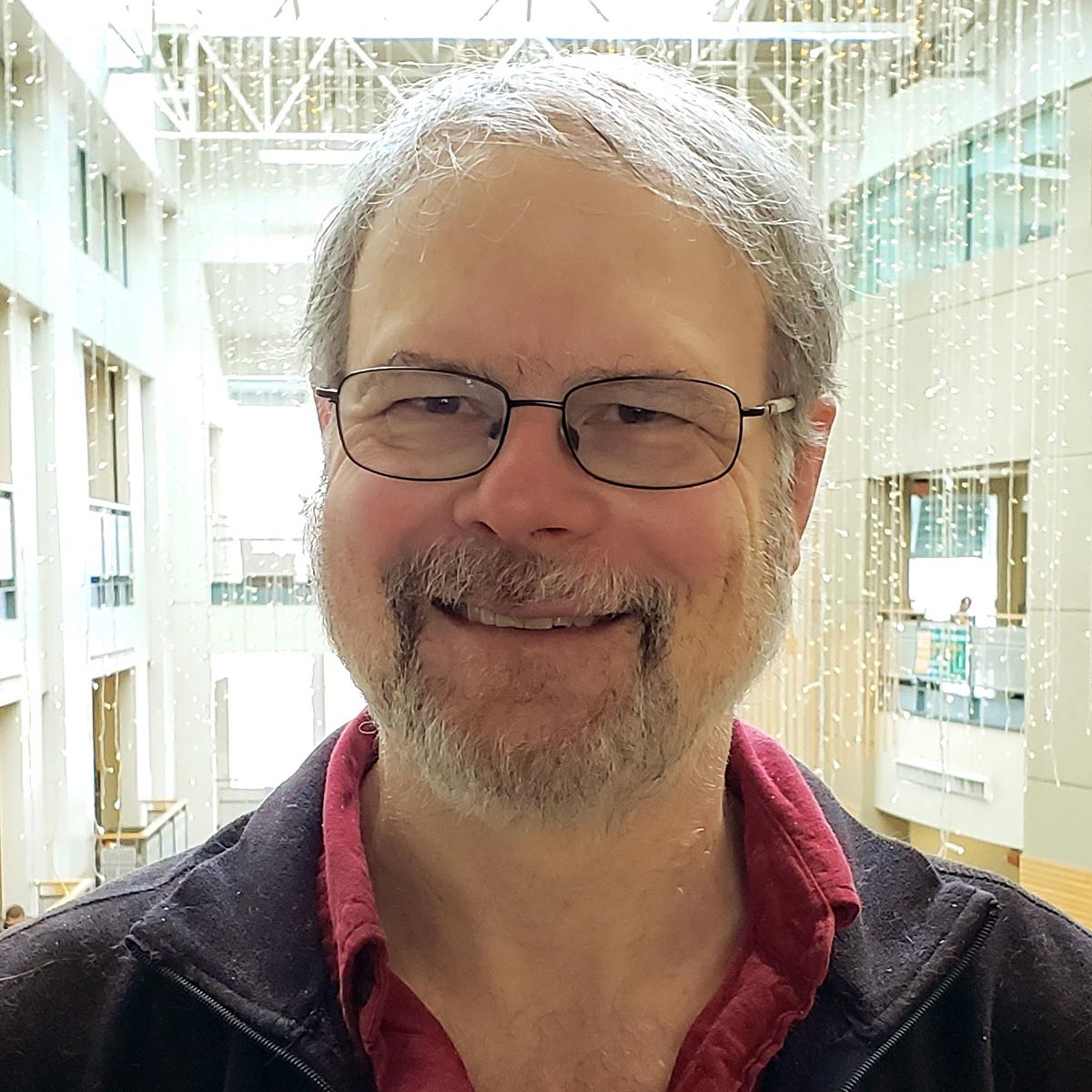Kurt Queller, Senior Instructor Emeritus, taught linguistics, history of English, Bible as literature, German and occasionally other languages.
- Ph.D., Linguistics, Stanford University, 1994
- M.A., Speech and Hearing Science, University of Illinois at Urbana-Champaign, 1978
- B.A., History, University of Illinois at Urbana-Champaign, 1976
Courses
- ENGL 241 – Introduction to the Study of Language
- ENGL 375: Bible as Literature
- ENGL 404/504 – Cognitive Linguistics
- ENGL 442: Introduction to English Syntax and Morphology
- ENGL 443: Language Variation
- ENGL 496: History of the English Language
- ENGL 510: Discourse Analysis
- ENGL 518 – Advanced English Grammar
- ENGL 524 – Descriptive Linguistics
- German 101/102 – Elementary German
- German 107 – German Conversation Lab
Kurt Queller comes to linguistics by way of a love of languages. Besides English, he is conversant in German, Italian, French, Spanish, Dutch and Mandarin (with working knowledge also of Russian, Latin, Greek and Hebrew). His primary scholarly interest is in how words acquire new senses in particular discourse contexts, as hearers creatively infer meanings for utterances that were not expressly stated by the speaker, but which make sense in the given context. Secondary research interests include literary analysis of biblical texts, with a focus on how ancient authors use echoes of prior texts to create new layers of signification within their own texts. Besides regularly teaching German in the Department of Modern Languages and Cultures, he teaches primarily upper-division linguistics courses within the English Department. He has also been known to teach courses in history, religious studies, and the freshman core, as well as in Chinese, Latin and Spanish. In 2015 he received University of Idaho's Award for Excellence in Teaching.
- Biblical exegesis
- Child language acquisition
- Cognitive linguistics
- Discourse analysis
- Language change
- Lexical semantics
- “Wives and widows in medieval Flanders.” (With Ellen Kittell.) Social History 41:4 (October 2016), pp. 436–454.
- “’Stretch out your hand!’ Echo and metalepsis in Mark’s healing controversy story.” Journal of Biblical Literature 129, no. 4 (Dec. 2010): 737–758
- "Toward a socially situated, functionally embodied lexical semantics: The case of (all) over." In Body, Language and Mind. (René Dirven, Roslyn Frank, Tom Ziemke and Jordan Zlatev, eds.) Berlin: Mouton de Gruyter. 2008
- “Metonymic sense shift: Its origins in hearers’ abductive construal of usage in context.” In Hubert Cuyckens, René Dirven and John R. Taylor (eds.), Cognitive Approaches to Lexical Semantics. Berlin/New York: Mouton de Gruyter. 2003. Pp. 211-241.
- “A usage-based approach to modeling and teaching the phrasal lexicon. In Applied Cognitive Linguistics II: Language Pedagogy. (Martin Pütz, Susanne Niemeier, René Dirven, eds.) Berlin: DeGruyter. 2001. pp. 55-83.
- “'Whether man or woman': Gender-inclusivity in the town ordinances of medieval Douai.” (With Ellen E. Kittell.) Journal of Medieval and Early Modern Studies 30 (Winter 2000), 63-100 .
Research/Writing Projects in Progress
Articles in Progress
- “The ‘politically correct' passive-participial disabilities construction: A study in cognitive onomasiology.” (With Sophie Raineri.)
- “’Dank’ burritos and ‘sick’ interfaces: The micro-semantics of two slang terms of approval.”
- “'I’d invite you in but my life is a mess’: Conceptual blending in New Yorker cartoon humor.”
Completed article manuscripts:
- “Subjectification via metanalysis: The evolution of the vernacular American personal dative construction.” (With Liela Rotschy McLachlan.) Submitted for consideration at the Journal of Historical Linguistics. (Talk version presented at the annual meeting of the Societas Linguistica Europaea [Workshop on Ethical Datives], Logroño, Spain, Sept. 2011.)
Book manuscripts:
- Polysemy: A Usage-Based Approach. (Provisionally to appear in the Cognitive Linguistic Research series, Mouton de Gruyter (Berlin / New York).
- Echoic Resonance and Metaleptic Signification in the Gospel of Mark.
Article manuscripts:
- “Do we conceptualize time in terms of space? Reconsidering the linguistic evidence.”
- “The emergence of sibilants in early speech: A phonologization path account.”
- "Generalization in developing grammars: rule simplification or schema accretion?"







